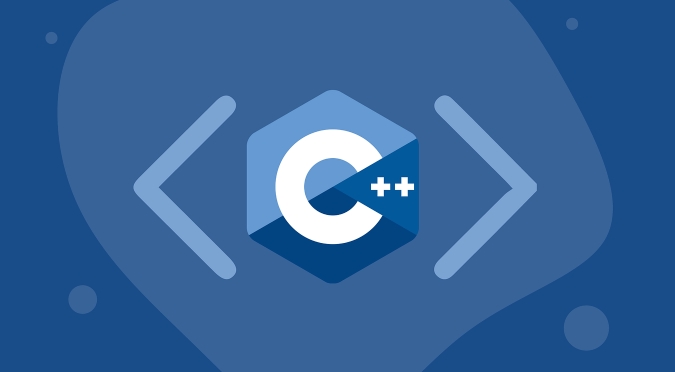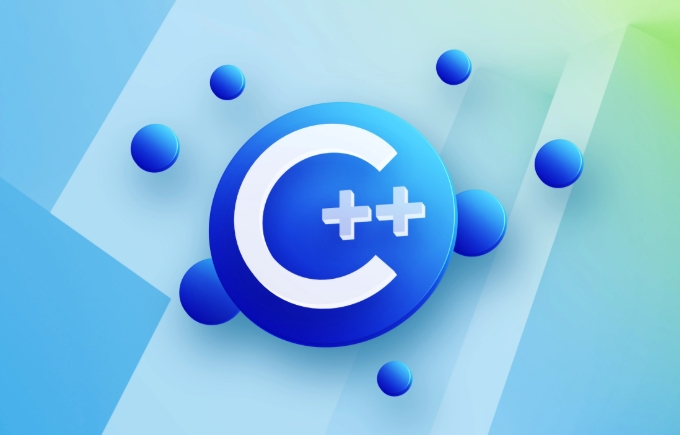What is the mutable keyword in C ?
In C, the mutable keyword is used to allow the object to be modified, even if the object is declared as const. Its core purpose is to maintain the logical constants of the object while allowing internal state changes, which are commonly found in cache, debug counters and thread synchronization primitives. When using it, mutable must be placed before the data member in the class definition, and it only applies to data members rather than global or local variables. In best practice, abuse should be avoided, concurrent synchronization should be paid attention to, and external behavior should be ensured. For example, std::shared_ptr uses mutable to manage reference counting to achieve thread safety and const correctness.

In C , the mutable keyword is used to allow a specific data member of an object to be modified, even if the object itself is declared as const . This might sound contrastory at first — after all, a const object shouldn't change, right? But there are cases where you want most of an object to remain constant while still allowing certain internal values to vary. That's where mutable comes in handy.

When and Why You'd Use mutable
The main use case for mutable is when you have a class that needs to maintain some internal state that doesn't affect the logical consist of the object. For example:

- Caching : You might compute a value once and cache it, but you want to store the result without marking the whole object as non-const.
- Debug counters or logging : You may want to track how many times a const function was called, but not consider that counter part of the object's observable state.
- Thread synchronization primitives : Like mutexes inside a const object that need to lock/unlock internally.
This lets you keep your interface const-correct while still being able to make internal modifications.
How to Apply mutable
Using mutable is straightforward — just place it before the data member declaration in the class definition. Here's a basic example:

class Example {
public:
int getValue() const {
callCount; // allowed because callCount is mutable
return value;
}
private:
int value = 42;
mutable int callCount = 0;
};In this case:
- The
getValue()method is markedconst, meaning it promises not to change the object. -
callCountis markedmutable, so even though we're increasing it inside aconstmethod, the compiler won't complain.
You can only apply mutable to data members, not to top-level variables or local variables.
Common Pitfalls and Best Practices
Here are a few things to watch out for when using mutable :
- ❌ Don't overuse it – If everything is mutable, then
constbecomes meaningless. Only apply it where the modification truly doesn't change the object's externally visible behavior. - ⚠️ Be careful with concurrency – Even if a member is logically OK to mutate, you may still need synchronization (like a mutex) if your code is multi-threaded.
- ✅ Use it for encapsulated logic – It works best when the mutable state is something internal like a cache or counter that users of the class don't care about directly.
One real-world example is the standard library's std::shared_ptr , which uses mutable under the hood to manage reference counts in a thread-safe way without breaking const correctness.
Basically that's it.
The above is the detailed content of What is the mutable keyword in C ?. For more information, please follow other related articles on the PHP Chinese website!

Hot AI Tools

Undress AI Tool
Undress images for free

Undresser.AI Undress
AI-powered app for creating realistic nude photos

AI Clothes Remover
Online AI tool for removing clothes from photos.

Clothoff.io
AI clothes remover

Video Face Swap
Swap faces in any video effortlessly with our completely free AI face swap tool!

Hot Article

Hot Tools

Notepad++7.3.1
Easy-to-use and free code editor

SublimeText3 Chinese version
Chinese version, very easy to use

Zend Studio 13.0.1
Powerful PHP integrated development environment

Dreamweaver CS6
Visual web development tools

SublimeText3 Mac version
God-level code editing software (SublimeText3)

Hot Topics
 What is a POD (Plain Old Data) type in C ?
Jul 12, 2025 am 02:15 AM
What is a POD (Plain Old Data) type in C ?
Jul 12, 2025 am 02:15 AM
In C, the POD (PlainOldData) type refers to a type with a simple structure and compatible with C language data processing. It needs to meet two conditions: it has ordinary copy semantics, which can be copied by memcpy; it has a standard layout and the memory structure is predictable. Specific requirements include: all non-static members are public, no user-defined constructors or destructors, no virtual functions or base classes, and all non-static members themselves are PODs. For example structPoint{intx;inty;} is POD. Its uses include binary I/O, C interoperability, performance optimization, etc. You can check whether the type is POD through std::is_pod, but it is recommended to use std::is_trivia after C 11.
 How to pass a function as a parameter in C ?
Jul 12, 2025 am 01:34 AM
How to pass a function as a parameter in C ?
Jul 12, 2025 am 01:34 AM
In C, there are three main ways to pass functions as parameters: using function pointers, std::function and Lambda expressions, and template generics. 1. Function pointers are the most basic method, suitable for simple scenarios or C interface compatible, but poor readability; 2. Std::function combined with Lambda expressions is a recommended method in modern C, supporting a variety of callable objects and being type-safe; 3. Template generic methods are the most flexible, suitable for library code or general logic, but may increase the compilation time and code volume. Lambdas that capture the context must be passed through std::function or template and cannot be converted directly into function pointers.
 What is the mutable keyword in C ?
Jul 12, 2025 am 03:03 AM
What is the mutable keyword in C ?
Jul 12, 2025 am 03:03 AM
In C, the mutable keyword is used to allow the object to be modified, even if the object is declared as const. Its core purpose is to maintain the logical constants of the object while allowing internal state changes, which are commonly found in cache, debug counters and thread synchronization primitives. When using it, mutable must be placed before the data member in the class definition, and it only applies to data members rather than global or local variables. In best practice, abuse should be avoided, concurrent synchronization should be paid attention to, and external behavior should be ensured. For example, std::shared_ptr uses mutable to manage reference counting to achieve thread safety and const correctness.
 What is a null pointer in C ?
Jul 09, 2025 am 02:38 AM
What is a null pointer in C ?
Jul 09, 2025 am 02:38 AM
AnullpointerinC isaspecialvalueindicatingthatapointerdoesnotpointtoanyvalidmemorylocation,anditisusedtosafelymanageandcheckpointersbeforedereferencing.1.BeforeC 11,0orNULLwasused,butnownullptrispreferredforclarityandtypesafety.2.Usingnullpointershe
 What is an abstract class in C ?
Jul 11, 2025 am 12:29 AM
What is an abstract class in C ?
Jul 11, 2025 am 12:29 AM
The key to an abstract class is that it contains at least one pure virtual function. When a pure virtual function is declared in the class (such as virtualvoiddoSomething()=0;), the class becomes an abstract class and cannot directly instantiate the object, but polymorphism can be realized through pointers or references; if the derived class does not implement all pure virtual functions, it will also remain an abstract class. Abstract classes are often used to define interfaces or shared behaviors, such as designing Shape classes in drawing applications and implementing the draw() method by derived classes such as Circle and Rectangle. Scenarios using abstract classes include: designing base classes that should not be instantiated directly, forcing multiple related classes to follow a unified interface, providing default behavior, and requiring subclasses to supplement details. In addition, C
 How to use OpenCV with C for image processing?
Jul 09, 2025 am 02:22 AM
How to use OpenCV with C for image processing?
Jul 09, 2025 am 02:22 AM
Using OpenCV and C for image processing is not complicated. You can quickly get started by mastering the basic process and common functions. 1. Installation and environment configuration: Ensure that OpenCV is installed correctly, Linux can be installed with package manager, Windows can use vcpkg or manually configure the path, and test whether it is normal through a simple program; 2. Basic operations of images: use cv::imread() to read, cv::imshow() to display, cv::imwrite() to save images, and pay attention to the necessity of path judgment and waitKey(); 3. Common image processing operations: including grayscale, Gaussian blur, Canny edge detection and threshold processing, which are usually used in the preprocessing stage; 4. Custom convolution kernel
 What is memory alignment and why is it important in C ?
Jul 13, 2025 am 01:01 AM
What is memory alignment and why is it important in C ?
Jul 13, 2025 am 01:01 AM
MemoryalignmentinC referstoplacingdataatspecificmemoryaddressesthataremultiplesofavalue,typicallythesizeofthedatatype,whichimprovesperformanceandcorrectness.1.Itensuresdatatypeslikeintegersordoublesstartataddressesdivisiblebytheiralignmentrequiremen
 How to generate a UUID/GUID in C ?
Jul 13, 2025 am 02:35 AM
How to generate a UUID/GUID in C ?
Jul 13, 2025 am 02:35 AM
There are three effective ways to generate UUIDs or GUIDs in C: 1. Use the Boost library, which provides multi-version support and is simple to interface; 2. Manually generate Version4UUIDs suitable for simple needs; 3. Use platform-specific APIs (such as Windows' CoCreateGuid), without third-party dependencies. Boost is suitable for most modern projects, manual implementation is suitable for lightweight scenarios, and platform API is suitable for enterprise environments.







